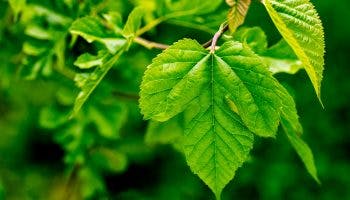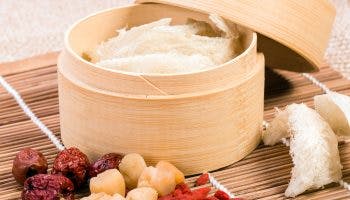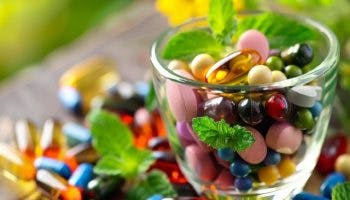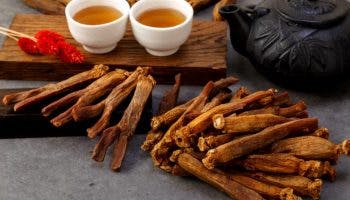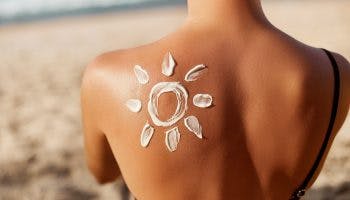Reviewed by Physician Brandon Yew, Physician Lim Sock Ling and Dr Angelica L Dumapit on February 1, 2023
Magic Mushrooms vs. Medicinal Mushrooms: What’s The Difference?
Published | 6 min read
Magic mushrooms contain a compound called psilocybin that causes you to hallucinate where medicinal mushrooms do not. Additionally, medicinal mushrooms contain a wide range of benefits to improve your mental and physical health.
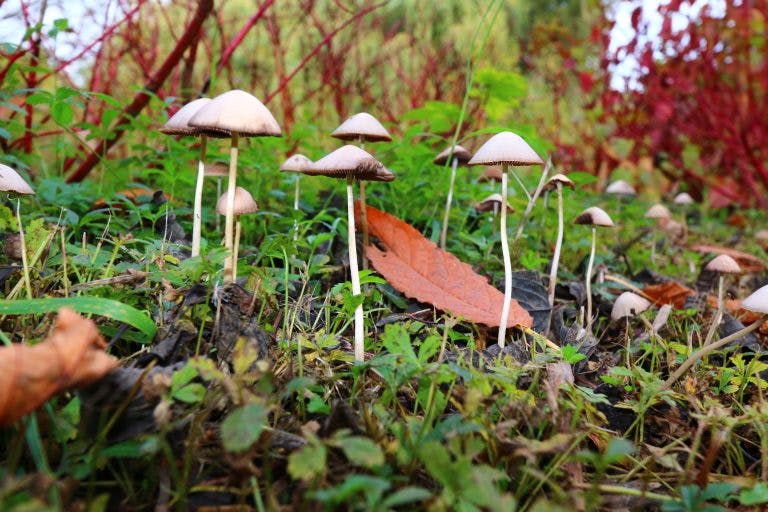
As of January 1, 2023, the therapeutic use of psychedelic drugs, such as magic mushrooms, was made legal in Oregon and parts of Canada.
Meanwhile, other parts of the United States, including Michigan and California, have decriminalized their use.
This means that buying them for home use still isn’t legal. However, you won’t get in as much trouble for using them as you once did.
Despite this, health experts worry that the approval of psychedelic mushrooms is moving faster than the public is ready for. Serious health risks may occur, including heart problems and suicide.
Medicinal mushrooms are often used in Traditional Chinese Medicine (TCM) to treat many of the health conditions magic mushrooms are used for, such as mental health issues, stress, addiction, and chronic pain. And because they don’t get you high or impair your judgment, many people are using them as a safer alternative to magic mushrooms.
Read on to learn more about these two types of mushrooms and why you may want to consider going the TCM route.
What Are Magic Mushrooms?
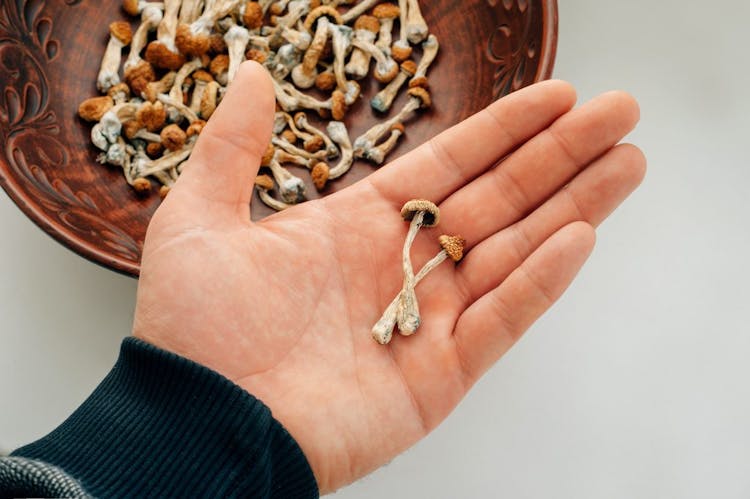
Magic mushrooms, also known as shrooms, are wild mushrooms that contain a naturally occurring hallucinogenic and psychoactive compound called psilocybin.
The government classifies psilocybin as a Schedule I drug. This means that it has a high risk of being misused and is not allowed for home use.
- Magic mushrooms can be consumed by drying them and mixing them into food or drinks. They can also be freshly picked and consumed.
- As a hallucinogenic drug, magic mushrooms cause you to see, hear, and feel things that are not really there. This is known as a “trip.”
- Side effects may include yawning, feeling anxious or drowsy, nervousness, paranoia, panic, nausea, vomiting, psychosis, and hallucinations.
Why Do People Use Magic Mushrooms?
Magic mushrooms and other psychedelic drugs were banned in 1971 after research from the 1950s and 1960s indicated the drug’s potential for abuse.
However, research on the possible health benefits of psilocybin has ramped up recently. Specifically, researchers are looking at how the drug affects the brain’s networking system to reduce depression and other mental health issues that skyrocketed during the COVID-19 pandemic.
One study found that psilocybin has the potential to treat mood and anxiety disorders, cluster headaches, limb pain, and addiction. In some trials, the drug was comparable to or more effective than opioids.
Risks of using magic mushrooms
Despite these possible benefits, magic mushrooms have the potential to be highly dangerous due to their hallucinogenic effect.
Mental health concerns

According to a John Hopkin’s Medicine study of 2,000 people who said they have a bad experience using magic mushrooms, more than 10 percent said their worst “bad trip” put themselves or others in danger.
A majority stated that the distressing experience was one of the top 10 biggest challenges in their life.
Another study noted that psychedelics may lead to suicide and other self-harming behaviors. Some users have been documented stabbing themselves, walking in front of traffic, and jumping off buildings believing they can fly.
Heart problems
In addition to making you hallucinate, certain mushrooms may cause seizures and even sudden death due to cardiac arrest.
One study found that repeated use of psychedelics produces ECG abnormalities that lead to cardiotoxic conditions. This may include tachycardia, myocardial ischemia, and problems within the heart’s electrical system.
Magic Mushrooms vs. Medicinal Mushrooms: How Are They Different?
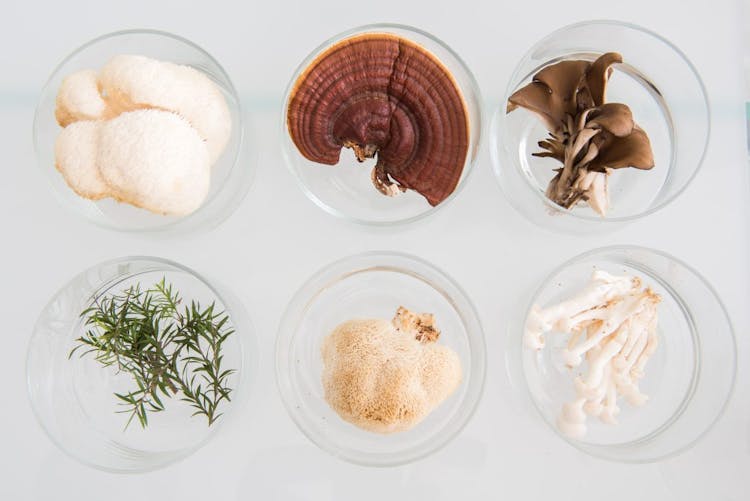
One of the major differences between these two types of mushrooms is that medicinal mushrooms do not contain psilocybin. Therefore, they do not cause you to hallucinate.
In TCM,
Other possible benefits of medicinal mushrooms include:
- Reduces allergy symptoms
- Anti-bacterial, anti-fungal, and anti-viral properties
- Cytotoxic (kills cancer cells)
- Reduces cholesterol
- Anti-diabetic
- Prebiotic properties (to boost digestion and immunity)
- Hepatoprotective (protects the liver)
- Nephroprotective (protects the kidneys)
- Osteoprotective
- Hypotensive (protects against high blood pressure)
Best Medicinal Mushrooms To Use In Place Of Magic Mushrooms
The following medicinal mushrooms can be used in place of magic mushrooms to reduce stress, pain, anxiety, depression, and more:
Cordyceps
Caterpillar fungus or
Animal studies show that it may be beneficial for depression management. Also, Cordyceps increases the production of ATP, which can strengthen the brain by encouraging better oxygen uptake. This promotes increased blood flow to brain cells and fights mental fatigue.
Additionally,
“From a TCM perspective, Cordyceps is a tonic that you can use to boost kidney function, enhance yang (active energy), improve lung health, and manage chronic cough and breathlessness. From a modern pharmacological and nutritional science perspective, it is potentially anti-aging and anti-tumor, effective in managing type 2 diabetes, improving heart health, and helping to reduce inflammation.”
TCM Physician Brandon Yew
Reishi
Reishi mushrooms, also known as Ganoderma lucidum o
Containing over 400 different bioactive compounds, these mushrooms can improve overall health, boost the immune system, promote longevity, and reverse aging.
Specifically, Reishi contains a compound called triterpene that helps to alleviate symptoms of anxiety, depression, and insomnia.
TCM practitioners use Reishi to invigorate qi and calm the mind. It can also help relieve cough and asthma.
Turkey tail
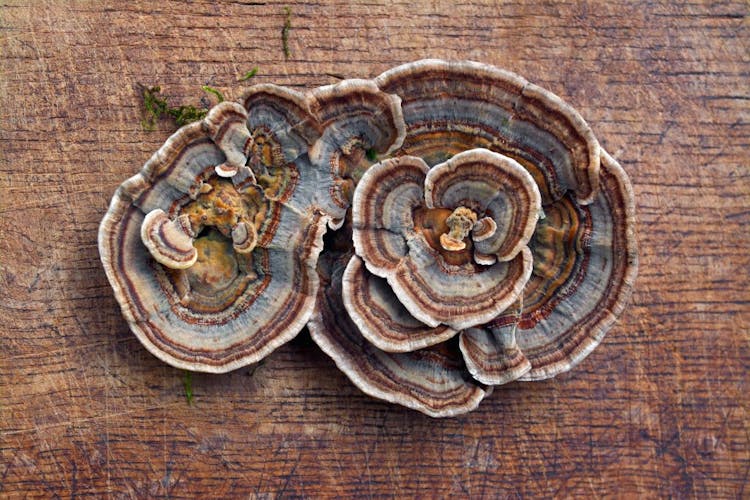
The medical term for turkey tail mushroom is Yunzhi (Coriolus Versicolor). It’s a medical mushroom that has a distinctive appearance.
Yunzhi is easily recognizable by its bands of white, gray, brown, black, blue, and red concentric circles that fan outwards in frilly layers. This gives it the appearance of a turkey tail.
“From a TCM perspective, turkey tail benefits the Liver, Spleen, and Lung meridians. It strengthens the Spleen and removes Dampness, relieves cough and breathlessness, and clears Heat and toxins. It also contains anti-cancer properties.”
TCM Physician Lim Sock Ling
Seek Help From A TCM Physician
Medicinal mushrooms offer many of the same health benefits users seek in magic mushrooms.
However, because they do not contain compounds that make you hallucinate, medicinal mushrooms may be a safer alternative to help you cope with stress, mental illness, and the daily struggles of life.
Consult a TCM physician if you have questions about using medicinal mushrooms.
Would you consider using medicinal mushrooms in place of magic mushrooms? Let us know in the comments below.
References
- The Economist. 2022. Psychedelic medicines are expanding into the public consciousness.
- Department of Justice. Natural Drug Intelligence Center. Psilocybin Fast Facts.
- Bridge Michigan. 2022. Mushrooms and other psychedelics gain foothold in Michigan. What to know.
- Scientific American. 2022. Restrictions on Psilocybin ‘Magic Mushrooms’ Are Easing as Research Ramps Up.
- Molecules. 2021. The Therapeutic Potential of Psilocybin.
- John Hopkins Medicine. Psychedelics Research and Psilocybin Therapy.
- John Hopkins Medicine. Researchers Urge Caution around Psilocybin Use.
- The Journal of Clinical Psychiatry. 2022. Shedding Light on Classic Psychedelics and Self-Harm.
- PubMed. 2013. Suicide under the influence of “magic mushrooms”
- ResearchGate. 2006. Psilocin multiple intake resulted and in cardiotoxic effects.
- World Journal of Clinical Cases. 2019. Cardiac arrhythmias and cardiac arrest related to mushroom poisoning: A case report.
Share this article on


